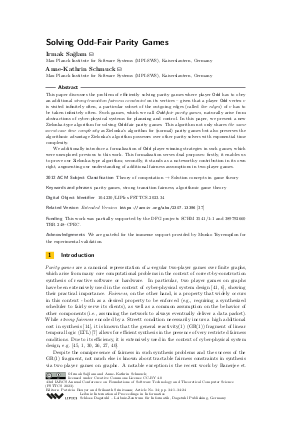LIPIcs.FSTTCS.2023.34.pdf
- Filesize: 1.46 MB
- 24 pages

 Creative Commons Attribution 4.0 International license
Creative Commons Attribution 4.0 International license













































Feedback for Dagstuhl Publishing